Sodium PCA is a popular hydrating ingredient in many cosmetic products, hair gels, sprays, shampoos, conditioners, lotions and serums. It's also an active ingredient in Divi's Scalp Serum, Shampoo & Conditioner for its potential therapeutic benefits.
This little-known sodium salt synergizes with other ingredients in our three scalp and hair products to help promote scalp health and strong, healthy hair.
What is Sodium PCA?
Sodium PCA (monosodium salt DL-proline) is the sodium salt of a naturally occurring chemical compound called pyrrolidone carboxylic acid. Other names for this compound include pyroglutamic acid and pyrrolidone carbonic acid.
PCA is a derivative of proline, one of the amino acids found in plant and animal tissue. Amino acids are essential "building blocks" that make up proteins. The amino acid proline supports essential functions in the human body, including regulating metabolism, managing the immune response, and wound-healing.
While sodium PCA may sound unnatural, it is endogenic, which means it occurs naturally in animals and plants. It is readily absorbed by the skin when used in skincare products and other topical lotions.
In human beings, sodium PCA forms part of the skin's Natural Moisturizing Factor, or NMF. The NMF is a group of substances produced in human skin that maintain a healthy epidermis. Together, they keep skin supple, healthy and well-hydrated.
How is Sodium PCA Made?
The sodium salt form of pyrrolidone carboxylic acid used in hair and skin care products is typically taken from fruits, plants and oils. Coconut oil, soybeans and seaweed are three of the most common sources. PCA is extracted in a clean laboratory environment and fermented to produce pure sodium salt.
Interestingly, the plant source used in the production of sodium PCA has some bearing on its ultimate use. For instance, salts derived from coconut oil are often used as emulsifiers, whereas seaweed and grass-derived salts are primarily used as humectants and moisturizers.
The sodium PCA used in Divi's Scalp Serum, Shampoo & Conditioner is never derived from animal sources or tested on animals. This means it is 100% cruelty-free and suitable for vegans.
How Does the Body Produce Sodium PCA?
When sodium PCA is produced naturally in the human body, it comes from the protein filaggrin, which binds keratin to fibers in skin cells. Filaggrin is found in dead skin cells called corneocytes, which make up the protective barrier in the outermost layer of skin. Sodium pyroglutamate is made when the body recycles these skin cells to produce Natural Moisturizing Factors. Sodium PCA comprises about 12% of the NMF, alongside lactic acid, sugars, amino acids and short-chain proteins.
The Properties of Sodium PCA
Like most ingredients in Divi's Scalp Serum, Shampoo & Conditioner, sodium PCA has several fundamental properties that benefit overall scalp and hair health. It's primarily known as a skin-replenishing ingredient for its ability to moisturize and hydrate, but the benefits of using sodium PCA do not end there.
Effective Emollient
Sodium PCA is an effective emollient, primarily sourced from soybeans or seaweed. The terms emollients and moisturizers are often used interchangeably, though they refer to two distinct functions.
Emollients are often used in conditioners, serums and leave-on products designed to treat dry or cracked skin. They are the component within a moisturizer that softens and smooths the skin's surface by "filling in" gaps between cells with softening fatty deposits.
Superior Hydrating Power
Sodium PCA is a potent humectant. Due to their chemical structure, these water-soluble substances draw water into themselves and retain it. As you might imagine, sodium PCA is a hydrating superpower for your skin, scalp and hair. Studies show how regular use can lead to significantly improved skin hydration.
When applied as part of a hydrating formulation, sodium PCA attracts water molecules from the surrounding air and traps them in the skin's upper layers and the hair shaft's outer layer, creating a protective, hydrating barrier. Hyaluronic acid, sodium lactate and glycerin are other effective humectants frequently found in personal care products (including our Scalp Serum). Like these ingredients, sodium PCA can hold its weight many times in water.
Emulsifying Ingredient
Sodium PCA is far more than just a humectant. It also emulsifies hair and skin care products, especially when derived from coconut or other plant oils. Emulsifiers stop formulations from separating when they contain ingredients that don't mix or combine well. In this respect, sodium PCA improves product texture and extends shelf life.
Non-Comedogenic
Unlike many other ingredients which increase moisture content and improve skin condition, sodium PCA is non-comedogenic. This means it does not clog pores or hair follicles.
Non-comedogenic ingredients are better at maintaining hair follicle health and promoting circulation and oxygenation.
How Does Sodium PCA Compare to Other Hydrating Ingredients?
Many high-quality scalp care products, including Divi's Scalp Serum, use sodium PCA alongside other powerful humectants, like hyaluronic acid, sodium lactate and glycerin. Despite having similar properties, these substances are often used together because of their complementary actions. Plus, they all have slightly different attributes.
In attracting water, sodium PCA is known to be more potent than glycerin and other mild humectants, holding up to 250 times its weight in water. Hyaluronic acid is even more powerful, holding up to 1,000 times its weight in water.
Hyaluronic acid might be the undisputed champion of moisture retention, but sodium PCA is the champion in several other key areas. For example, sodium PCA is thought to be the better anti-inflammatory ingredient. It's also excellent at combatting dry, flaky skin and scalp conditions like dandruff and seborrheic dermatitis.
What Are the Benefits of Sodium PCA for Your Scalp and Hair?
No single ingredient can be a magic bullet to improve hair quality and boost growth. Sodium PCA, however, does have a myriad of beneficial actions when used alongside other active ingredients as part of the proprietary blends in Divi’s Scalp Serum, Shampoo & Conditioner.
Longer, Thicker Hair
The humectant sodium PCA can help to improve the condition of new and existing hair. Drawing water into the hair shaft's surface can increase strength and elasticity, thus minimizing hair breakage. Over time, this can create the illusion that hair grows faster because hair becomes longer and thicker sooner when breakage is prevented.
Silky, Shiny Hair
Products containing sodium PCA can help to combat dull, lifeless or frizzy hair. When hair becomes dry, it's more susceptible to frizz and flyaways caused by static electricity. Sodium PCA promotes superior hydration and, in turn, silky, shiny hair by holding water beneath the surface of the hair shaft.
Controls Hair Fall
Sodium PCA does not directly combat hair loss, but it could theoretically help minimize hair loss in cases caused by poor scalp health. People who use serums and other hair and scalp care products containing sodium PCA may notice what appears to be an improvement in hair loss due to sodium PCA's scalp-conditioning effect. This is because keeping the scalp healthy and hydrated can help to moderate hair fall so that it is less noticeable.

Helps Chemically Damaged Hair
Hair damaged due to chemical treatment is often dry, porous and brittle. Products containing sodium PCA can help to heal chemically damaged hair by restoring moisture and forming a protective barrier on the hair shaft. This protective action can also work to prevent chemical damage from occurring in the first place.
Treating Inflammatory Scalp Conditions
PCA works alongside other ingredients to protect and maintain the average balance of protective bacteria on the skin's surface. When harsh chemicals and other environmental factors throw this microflora out of balance, skin can become prone to irritation and inflammatory breakouts.
Though there is no clinical evidence to prove sodium PCA combats scalp psoriasis, this anti-inflammatory action could prove helpful in the management of psoriasis symptoms. Its deep moisturizing power can help soften psoriasis plaques and minimize irritation during breakouts.
Treating Eczema and Flaky Scalp
Studies consistently show sodium PCA can treat eczema and other dry, irritated skin conditions.
One study found sodium PCA works in conjunction with other anti-inflammatory humectants to improve irritation, texture and dryness with regular application over two weeks. Researchers also observed an impressive 44% increase in skin hydration over the same timeframe.
People who struggle with limited hair growth or poor hair condition due to scalp eczema or another dry skin condition may benefit from using a product containing sodium PCA as part of their regular hair care routine.
Hair and Scalp Protection
Sodium PCA can protect and restore the skin barrier. Regular use doesn't just repair hair and scalp damage but can help prevent future damage by maintaining healthy moisture levels and bacterial balance. Products containing sodium PCA can avoid or limit the damage caused by UV rays, pollution, heat, allergens and chemicals.
Who Would Benefit From Topical Application of Sodium PCA?
As a natural component of the skin's NMF, sodium PCA is suitable for use on all hair and skin types. This ingredient is unusual because it's equally appropriate for dry and oily skin. This feature is due to increasing moisture without clogging pores or follicles, thanks to its non-comedogenic properties.
Are There Any Risks or Adverse Effects From Sodium PCA?
Environmental Working Group (EWG) experts say sodium PCA is safe for personal care products. This sodium salt was awarded the lowest possible risk score (1 out of 10), which means it is non-irritating and suitable for use on all skin and hair types. Clinical tests have exposed no risk of toxicity or immunotoxicity.
Divi's Scalp Serum, Shampoo & Conditioner are all carefully formulated to avoid potentially harmful chemical reactions to this ingredient – and all others in our lineup of products. Sodium PCA is well-tested and widely accepted as a safe ingredient in cosmetics and personal care products. However, we recommend conducting a skin sensitivity test before using any new personal care products if you have extremely sensitive or reactive skin.
If in doubt, chat with your general physician or dermatologist about your concerns.









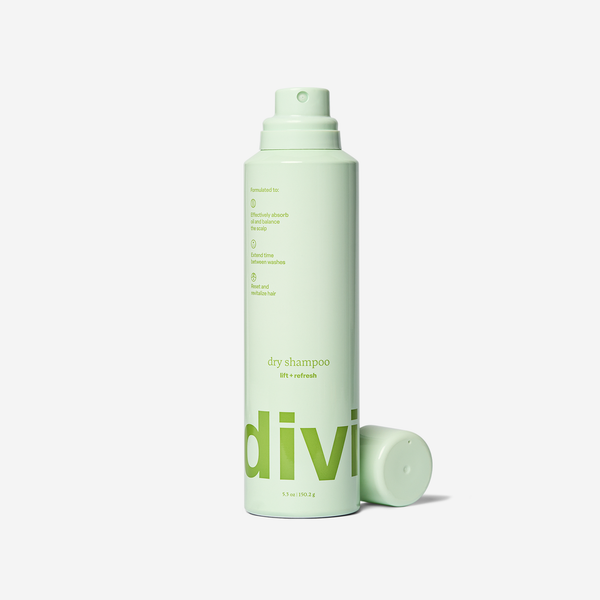

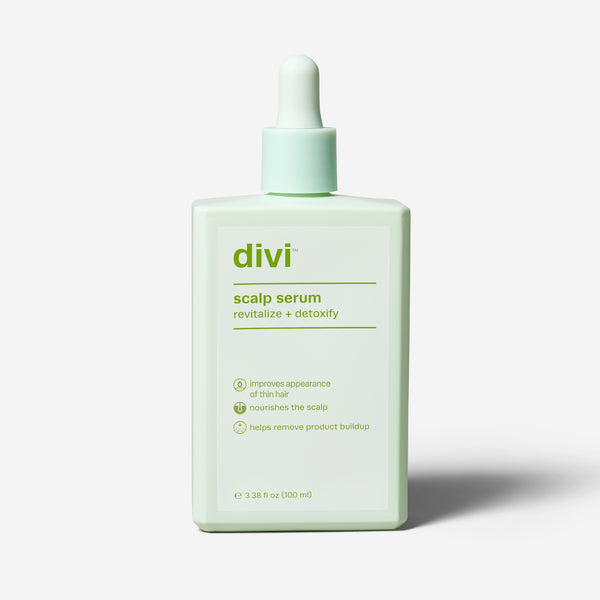

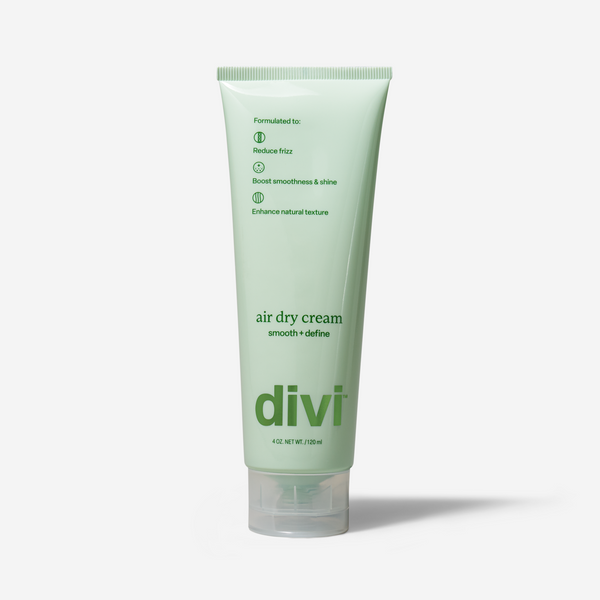
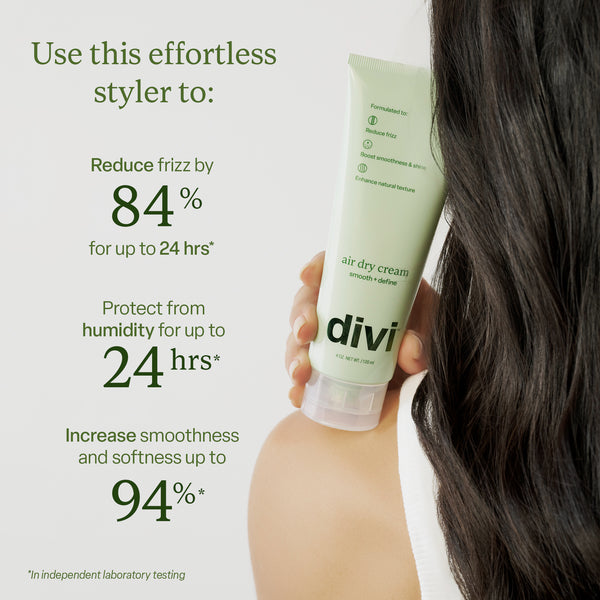
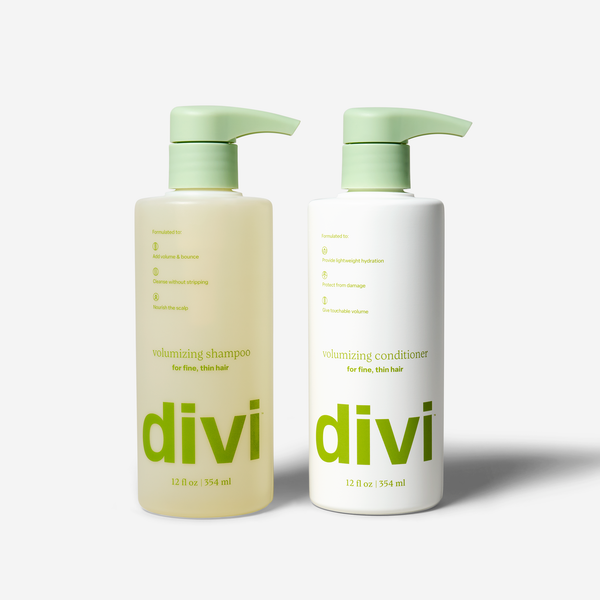

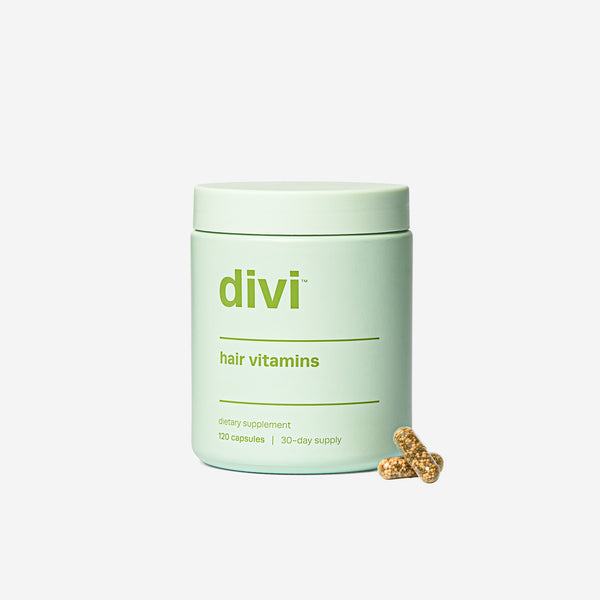
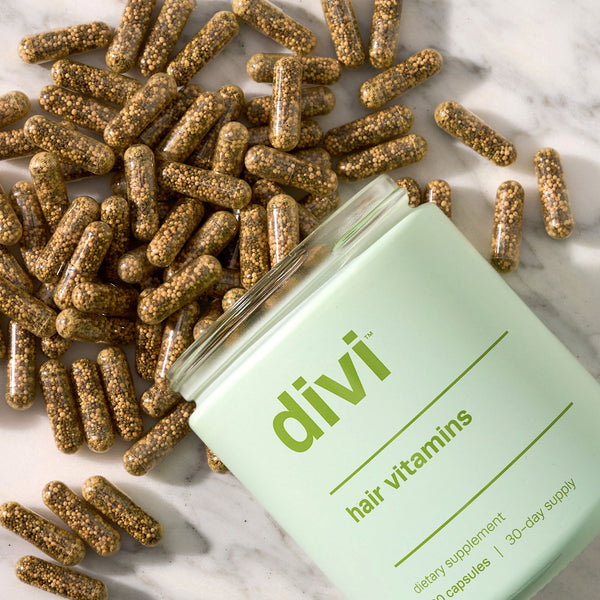
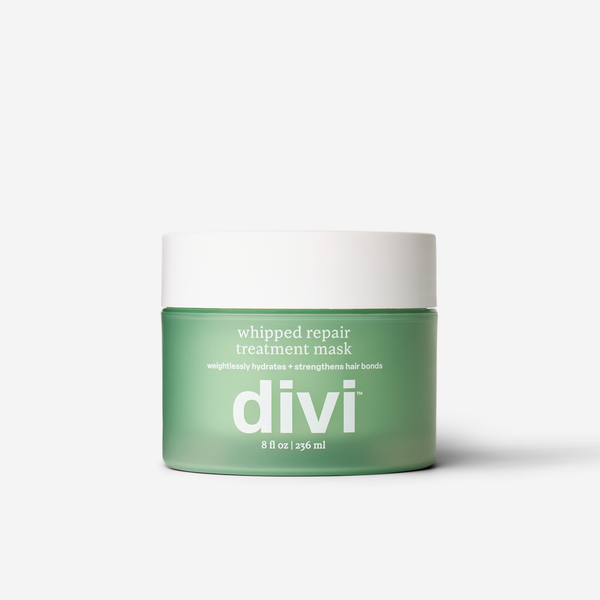
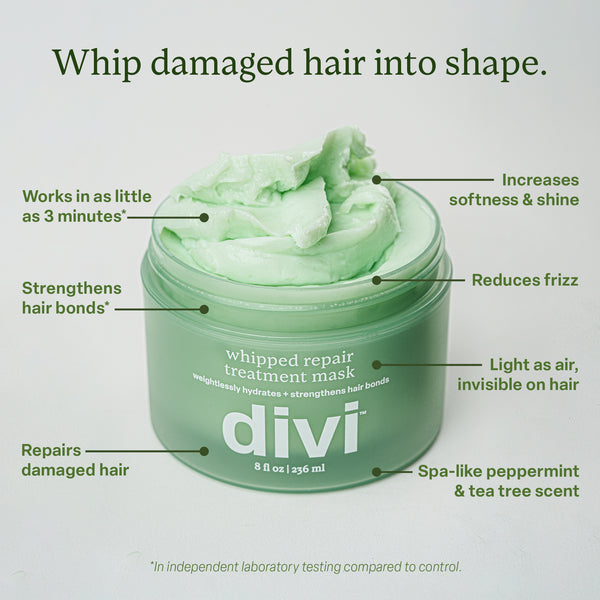
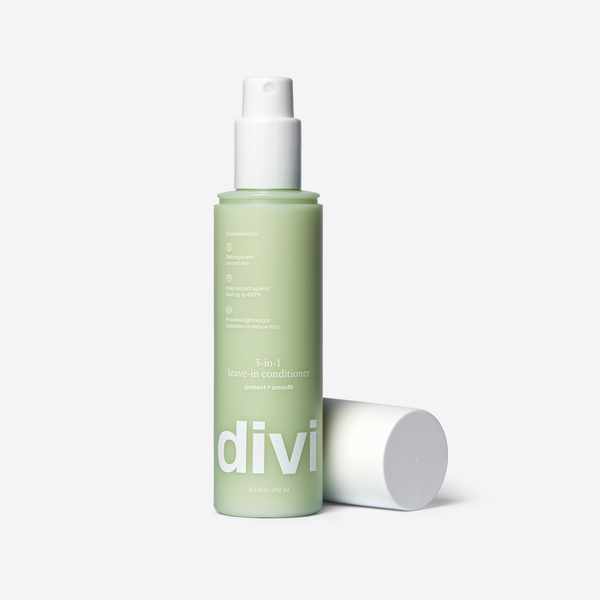



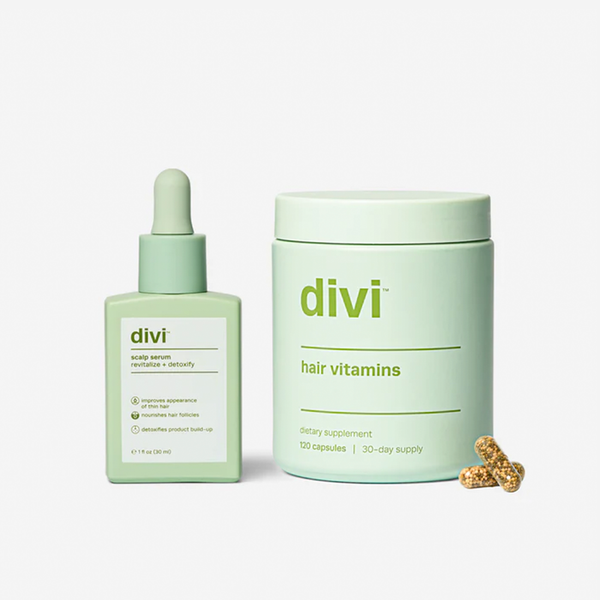
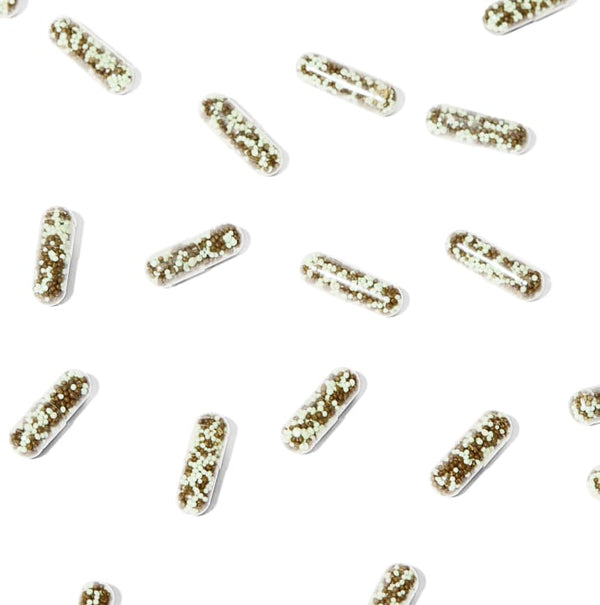
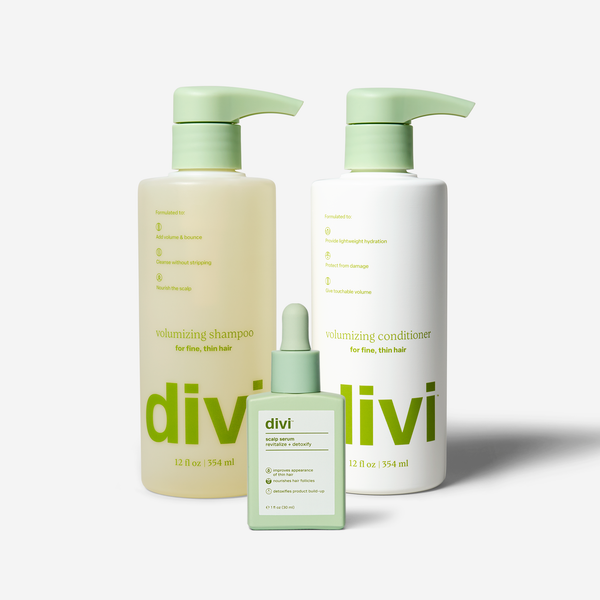
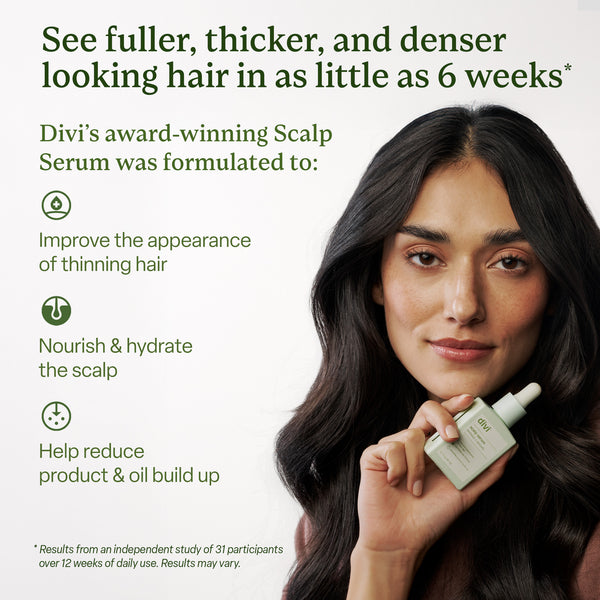











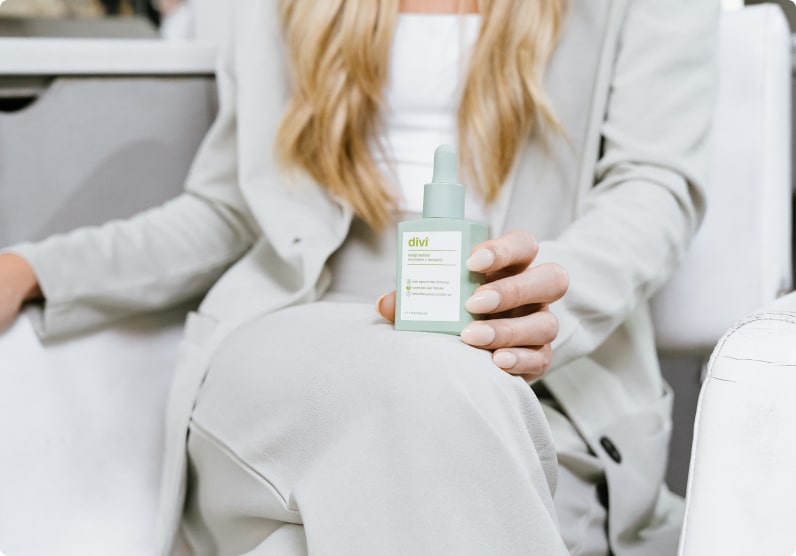






 30ml Scalp Serum
30ml Scalp Serum
 100ml Scalp Serum
100ml Scalp Serum
 Volumizing Shampoo
Volumizing Shampoo
 Hydrating Shampoo
Hydrating Shampoo
 Volumizing Conditioner
Volumizing Conditioner
 Hydrating Conditioner
Hydrating Conditioner
 3-in-1 Leave-In Conditioner
3-in-1 Leave-In Conditioner
 Best Sellers Bundle
Best Sellers Bundle
 Volumizing Starter Bundle
Volumizing Starter Bundle
 Hydrating Starter Bundle
Hydrating Starter Bundle
 The Healthy Hair Bundle
The Healthy Hair Bundle
 Hair Vitamins Trio
Hair Vitamins Trio
 Dry Shampoo
Dry Shampoo
 Hair Vitamins
Hair Vitamins
 Volumizing Shampoo & Conditioner
Volumizing Shampoo & Conditioner
 Travel-Sized Volume Duo
Travel-Sized Volume Duo
 Hydrating Shampoo & Conditioner
Hydrating Shampoo & Conditioner
 Travel-Sized Hydrating Duo
Travel-Sized Hydrating Duo
 Travel-Sized Dry Shampoo
Travel-Sized Dry Shampoo
 Travel-Sized Dry Shampoo Trio
Travel-Sized Dry Shampoo Trio
